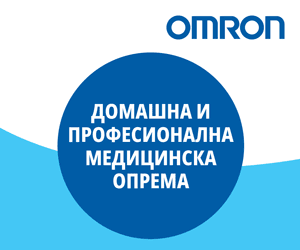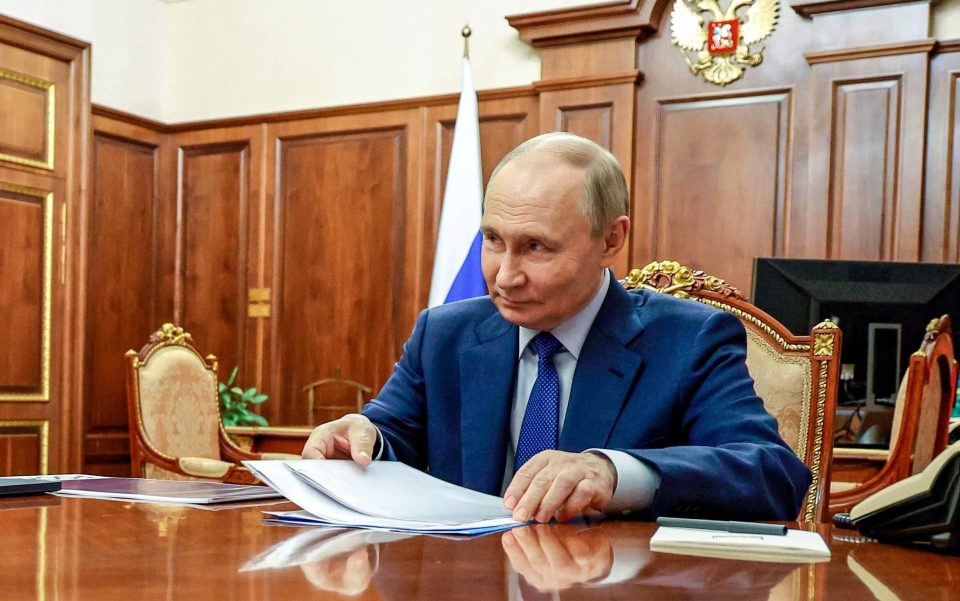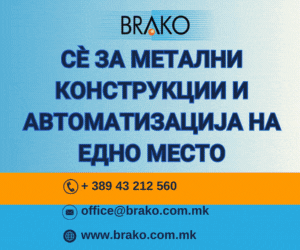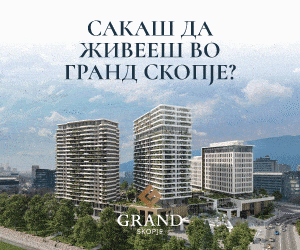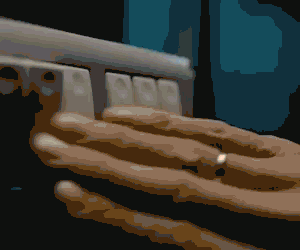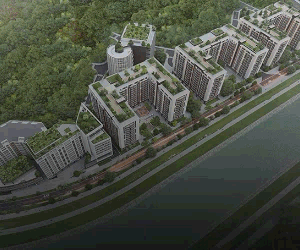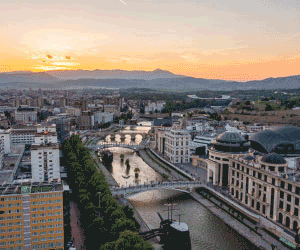Donald Trump admitted for the first time that Vladimir Putin was not ready to end the war in a phone call with European leaders this week. The US president, speaking to Kyiv’s European allies on Monday after a call with Putin, said he knew the Russian leader wanted to keep fighting as he believed he was winning. The acknowledgement was the first time Kyiv’s European allies had heard the US president admit that Putin was not seeking peace, sources told the Wall Street Journal. It also ran counter to Mr Trump’s public claims that the Russian president wanted to end the war.
Meanwhile Sergei Lavrov, Russia’s foreign minister, repeated the Kremlin’s demand that the “root causes” of the war – Russia’s shorthand for Ukraine’s ambition to join Nato – were addressed before any potential ceasefire. The Kremlin on Thursday said that no further planned talks with Ukraine had been agreed after last week’s negotiations in Istanbul, despite Mr Trump suggesting they could take place at the Vatican next month. Moscow also said it had handed over a list of 1,000 prisoners it wanted back from Ukraine in what is expected to be the largest exchange of the war so far. Monday’s call with European leaders came after Mr Trump spent two hours on the phone with Putin, which the US president described as “excellent”.
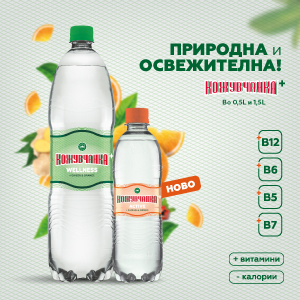
He had previously said he would be willing to impose sanctions on Russia. He later backtracked during the conversation and was no longer willing to take such action. Mr Trump also initially suggested a willingness to send senior officials, including Marco Rubio, the US secretary of state, to potential peace negotiations between Russia and Ukraine at the Vatican next month. But he was then non-committal on the call with European leaders, which included Ukraine’s president Volodymyr Zelensky, Emmanuel Macron, the president of France, and Germany’s new chancellor, Friedrich Merz.

Pope Leo has expressed willingness to host the summit, which would follow the first direct peace talks between the two sides in Istanbul last week. But the Kremlin on Thursday disputed reports that peace talks will take place between Ukraine and Russia at the Vatican in June.
“There have been no agreements on this matter,” the Kremlin spokesperson, Dmitry Peskov, told reporters. Peskov also rejected claims by Alexander Stubb, Finland’s president, that a “technical” round of negotiations aimed at ending the war in Ukraine could take place as early as next week in the Vatican. “There are no specific agreements for the next meetings. This has yet to be agreed upon,” he claimed. Sources said that Monday’s call occasionally veered away from the war in Ukraine, with Mr Trump complimenting Mr Merz’s English. “I love it even more with your German accent,” the US president reportedly said.
Brink of collapse
Mr Macron was also forced to step in after the US president said migration had led Europe to the “brink of collapse”. “You cannot insult our nations, Donald,” Mr Macron responded, according to one official, who added that the overall tone of the call was positive. Any talks between Russia and Ukraine at the Vatican would follow last week’s talks in Istanbul – the first direct negotiations between the two sides in more than three years. The Kremlin on Thursday said work to secure the conflict’s largest-ever prisoner of war swap, negotiated in Turkey last week, was under way and that it was waiting for a list of names from Ukraine.
Mr Zelensky confirmed Ukrainian preparations had begun, writing on X: “The agreement to release 1,000 of our people from Russian captivity was perhaps the only tangible result of the meeting in Türkiye. “We are working to ensure that this result is achieved.” The Ukrainian president has been working with Kyiv’s European allies to impose further sanctions on Putin in order to force him to the negotiating table. Mr Zelensky has personally lobbied Ursula Von der Leyen, the chief of the European Commission, and her Council counterpart Antonio Costa, to back a plan to sanction countries still buying oil from Russia, which would primarily affect China and India.

On Thursday, Putin announced the creation of a “buffer zone of security” along the Ukraine border. The Russian dictator did not provide any specifics on the location or length of the buffer zone, adding that “our armed forces are currently accomplishing this task” and “enemy firing points are being actively suppressed.” He gave the remarks in an update on the situation around Kursk, Belgorod and Bryansk, Russian regions that lie along a 250km stretch of the northern border with Ukraine.
“We need to help people return to their settlements and villages,” Putin added, suggesting the buffer zone would lie within territory held by Russia before its invasion of Ukraine. However, his announcement follows a meeting with Kursk officials who called on Putin to set up a “buffer zone” inside Sumy, the Ukrainian region across the border. Pavel Zolotarev, the head of Glushkovsky region, told the president he should seize “at least Sumy [city]” and implied Russia should be “bigger.”
The Institute for the Study of War, a Washington-based think tank, said those “buffer zone” discussions could be a prelude to a renewed Russian attempt to seize Ukrainian land in Sumy. Elsewhere, Germany is committed to spending 5 per cent of annual GDP on defence by 2035, chancellor Friedrich Merz has said, with 3.5 per cent going to the army and 1.5 to defence-linked infrastructure projects The Chancellor made the announcement in Lithuania, where he was visiting a German brigade deployed on Nato’s eastern flank.
Mr Merz has vowed to rearm the Bundeswehr, the German armed forces, and repair his country’s dilapidated transport network, which would serve as a key transit hub in a future war with Russia. It comes amid perceived wavering in Washington by Mr Trump, who had previously promised to wreck Putin’s economy if he did not agree to an unconditional ceasefire. But speaking after his call with Putin on Monday, the US president refused to implement further sanctions, despite the Russian leader again rejecting another ceasefire. “I think there’s a chance of getting something done, and if you do that, you could also make it much worse,” Mr Trump said, referring to implementing additional sanctions. “But there could be a time where that’s going to happen,” he added.
Meanwhile, Ukraine stepped up its response to Russia’s largest-ever drone attack, which occurred over the weekend. Ukraine fired dozens of drones towards Moscow overnight on Thursday for the second night in a row, causing all four of the Russian capital’s airports to temporarily suspend departures and arrivals. Russia claims it shot down 105 drones overnight, including 35 over the capital. Separately, Russia said on Thursday it had fired an Iskander-M missile at part of the city of Pokrov, formerly known as Ordzhonikidze, in Ukraine’s Dnipro region, destroying two US-made Patriot missile launchers and an AN/MPQ-65 radar set. Ukraine’s air force reported damage in the Dnipro region after an attack but did not specify the type of weapon.







